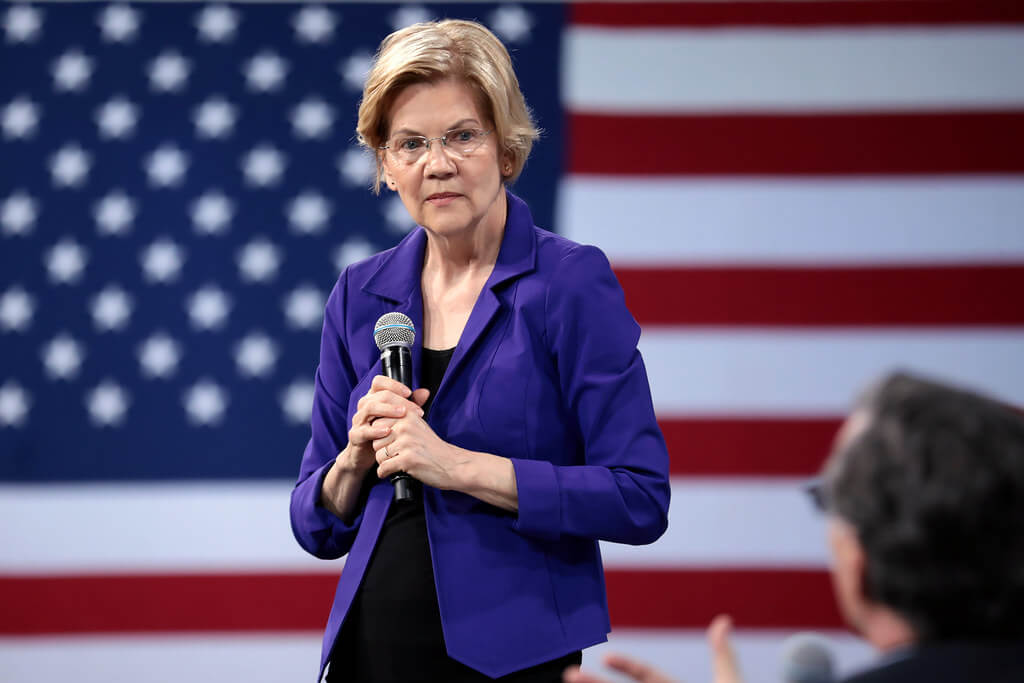Elizabeth Warren Clinches Massachusetts Senate Seat, Extending Anti-Crypto Influence
06.11.2024 12:00 1 min. read Alexander Stefanov
Democrat Elizabeth Warren has decisively won re-election to the Massachusetts Senate seat, securing 74% of the vote, with over 145,000 votes counted so far.
Her victory over crypto advocate John Deaton marks the continuation of her tenure, extending her influence in the Senate since 2013.
Deaton, a well-known crypto lawyer, notably supported XRP holders during the legal battle with the SEC.
Despite his strong crypto industry backing, including significant donations from the Winklevoss twins and Ripple, he was considered an underdog, trailing Warren by 20 to 30 percentage points in most polls.
During their debates, Deaton accused Warren of stifling crypto innovation, while Warren emphasized the need for crypto businesses to adhere to regulations, particularly around consumer protection and anti-money laundering.
Her 2023 Digital Asset Anti-Money Laundering Act has been a point of contention, with critics arguing it could stifle the sector.
Warren’s win ensures that Massachusetts will continue to have two Democratic senators, maintaining their 11-year streak in the U.S. Senate.
-
1
Here is Why the Fed May Cut Rates Earlier Than Expected, According to Goldman Sachs
08.07.2025 15:00 2 min. read -
2
Vitalik Buterin Warns Digital ID Projects Could End Pseudonymity
29.06.2025 9:00 2 min. read -
3
What Brian Armstrong’s New Stats Reveal About Institutional Crypto Growth
29.06.2025 15:00 2 min. read -
4
Donald Trump Signs “One Big Beautiful Bill”: How It Can Reshape the Crypto Market
05.07.2025 9:56 2 min. read -
5
Market Odds of a U.S. Recession in 2025 Drop in Half Since May
05.07.2025 18:30 2 min. read
BitGo Files Confidentially for IPO With SEC
BitGo Holdings, Inc. has taken a key step toward becoming a publicly traded company by confidentially submitting a draft registration statement on Form S-1 to the U.S. Securities and Exchange Commission (SEC).
Crypto Greed Index Stays Elevated for 9 Days — What it Signals Next?
The crypto market continues to flash bullish signals, with the CMC Fear & Greed Index holding at 67 despite a minor pullback from yesterday.
U.S. Public Pension Giant Boosts Palantir and Strategy Holdings in Q2
According to a report by Barron’s, the Ohio Public Employees Retirement System (OPERS) made notable adjustments to its portfolio in Q2 2025, significantly increasing exposure to Palantir and Strategy while cutting back on Lyft.
Key Crypto Events to Watch in the Next Months
As crypto markets gain momentum heading into the second half of 2025, a series of pivotal regulatory and macroeconomic events are poised to shape sentiment, liquidity, and price action across the space.
-
1
Here is Why the Fed May Cut Rates Earlier Than Expected, According to Goldman Sachs
08.07.2025 15:00 2 min. read -
2
Vitalik Buterin Warns Digital ID Projects Could End Pseudonymity
29.06.2025 9:00 2 min. read -
3
What Brian Armstrong’s New Stats Reveal About Institutional Crypto Growth
29.06.2025 15:00 2 min. read -
4
Donald Trump Signs “One Big Beautiful Bill”: How It Can Reshape the Crypto Market
05.07.2025 9:56 2 min. read -
5
Market Odds of a U.S. Recession in 2025 Drop in Half Since May
05.07.2025 18:30 2 min. read


